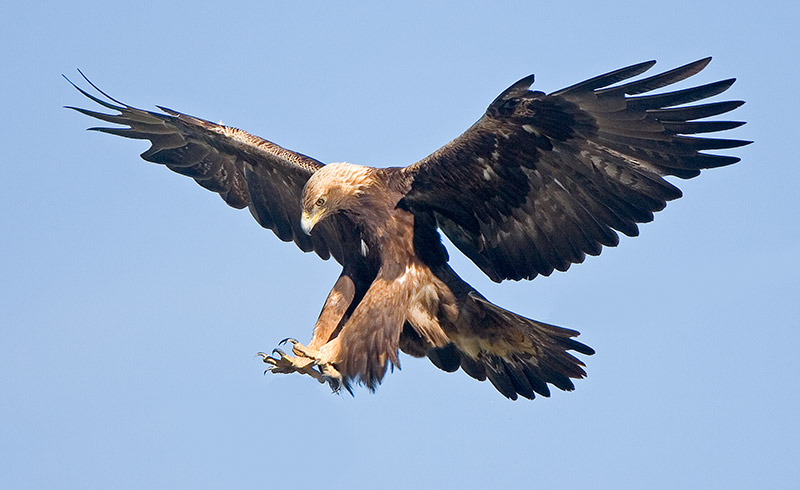I've been doing a small series at Livingston Free Church called 'Three Funerals and a Wedding - God's Faithfulness in Testing Times. You can listen to the sermons here.
This morning we looked at Ruth 2 under the title of 'Grace and Gratitude'. Among various points I spoke about the 'wings of refuge' in verse 12. Ruth and Naomi had come to Bethlehem full of grief, in utter poverty and without hope. In a patriarchal society they had both lost their husbands and therefore their protection, income and future. As we see right throughout Ruth the Covenant God loves the stranger and the widow and graciously takes them under his care.
We often
find the imagery of God being like the eagle. In many ways
this sums up the whole theme of the book of Ruth. An isolated
grief-stricken widow comes under the care and protection of the Covenant God of
Israel.

The eagle
imagery is used frequently in Scripture. In Exodus 19 v 4 we read: ‘You yourselves have seen what I did to the
Egyptians, and how I bore you on eagles wings and brought you to myself.’ The imagery
is of the strong eagle redeeming the Children of Israel by grace. Interestingly the prequel to the Ten Commandments was all about God's grace towards his people so the idea that there is no grace in the law is wrong. There is no grace to save in the law but God gave his laws in love to protect his people from sin and disobedience. The whole context of Ruth is about God's covenant laws that protected and provided for the poor (Leviticus 19). The whole reason Ruth gleaned in the field was because of God's law of love that obligated farmers to leave some of their harvest for the poor. Boaz went far beyond the law in terms of his love an generosity and showered Ruth with blessing. He is a picture of the grace and love that the ultimate kinsman redeemer, the Lord Jesus Christ, will shower on his people.
We see the eagle imagery used again in the song of Moses in Deuteronomy 32 v 11 ‘Like and eagle that
stirs up its nest, that flutters over its young, spreading out its wings,
catching them bearing them on its pinions, the Lord alone guided him, no
foreign god was with him.’ We see this
beautiful imagery about God’s love for his people in that chapter when God says: ‘he kept them as the apple of
his eye.’ There is a strong emphasis on God's individual love for his people.
We see this
imagery of wings used in the Psalms.
Psalm
17 v 8 ‘Hide me in the shadow of thy wings, from the wicked.’
Psalm
36 v 7 ‘how precious is thy grace! Therefore in shadow of thy wings men’s sons
their trust will place.’
Psalm
57 v 1 ‘Yea in the shadow of thy wings my refuge I will place, until these sad
calamities do wholly overpass.’
Psalm
63 v 7 ‘In shadow of thy wings I’ll joy, for thine my help hast been.’
What do
God’s wings demonstrate? Well they certainly demonstrate safety, refreshment, stillness, help, rest and hope Isn’t that
just what Ruth needed? This
frightened, vulnerable widow with no sense of belonging finds rest under the
wings of Jehovah the covenant God – a God who loves the poor and the stranger. She is offered a place at Boaz table, a beautiful picture of acceptance and community.
Is that what you need today? Shelter under the wings of the Lord. God’s love for Ruth was personal not general. As St Augustine says "God loves each one of us as if there was only one of us to love." God loves outsiders, outcasts, strangers, the lost, the broken and the filthy.
He loves to
cover sinners under his wings of love. As A.W. Tozer said in a similar vein to Augustine; 'Jesus Christ came not to condemn you but to save you, knowing your name, knowing all about you, knowing your weight right now, knowing your age, knowing what you do, knowing where you live, knowing what you ate for supper and what you will eat for breakfast, where you will sleep tonight, how much your clothing cost, who your parents were. He knows you individually as though there were not another person in the entire world. He died for you as certainly as if you had been the only one. He knows the worst about you and is the One who loves you the most.'
Excellent Bro. Thanks. D
ReplyDelete